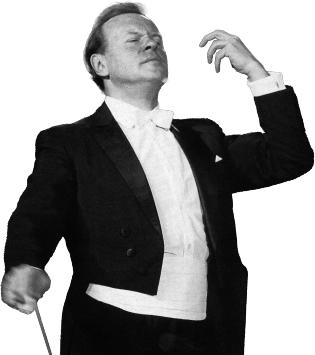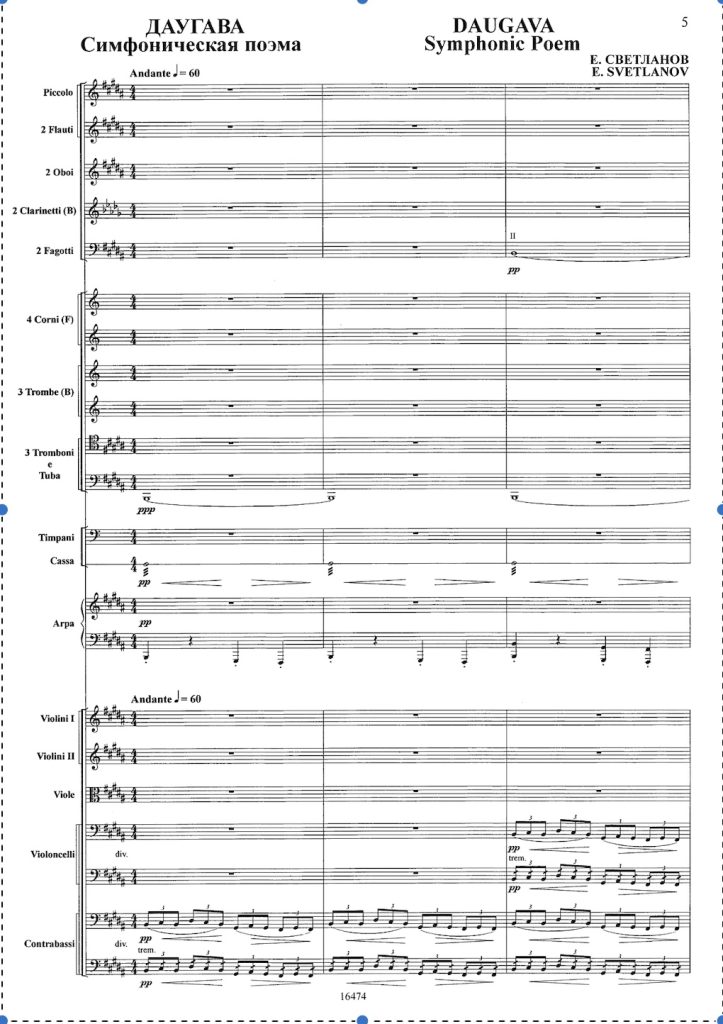The symphonic poem “Daugava” is Maestro Svetlanov’s first orchestral composition, written while still a third-year student at the Moscow Conservatory. The work was first performed in March 1953 at the Leningrad (Saint Petersburg) Conservatory.
The Daugava is the largest river in Latvia, flowing from Russia through Belarus before reaching Riga and the Gulf of Riga. In these two countries it is known as the Western Dvina. Its total length is 1,020 kilometers.
To his first orchestral work, Svetlanov added the following epigraph from the Latvian poet Jānis Sudrabkalns:
“I heard a song in the shadow of the branches,
It resounds within my soul.
Was it you singing in the grove, young maiden?
I felt the tenderness of your lips.
Was it not your voice, my homeland?
I felt a mother’s gentle caress.
Freedom, was it you who called, sacred one?
I felt your fire within my heart.
Like life rustling in the leaves, eternal one!
I felt the beauty of life.
I heard a song in the shadow of the branches,
And life became brighter and clearer.”
— Janis Sudrabkalns
“My first concert in this hall (the Grand Hall of the Moscow Conservatory – editor’s note) was on March 5, 1953. At a concert of the student orchestra, I conducted my own symphonic poem Daugava. It was the first performance of this work and, in fact, my conducting debut.
There were rather few people in the audience. We had had very few rehearsals, and near the end the orchestra began to falter and fall apart under my baton. Gradually it came to a stop, just like a gramophone spring that has run down and can no longer spin the record. In the silent hall I had no choice but to say: “Number 40.” To start again from that rehearsal mark and finish the piece. That was my first concert in this hall.
Then the late Ginzburg came up to me and comforted me. He said: “Zhenya, you know what? Don’t be upset.” I must have looked so distraught that I thought there would never again be any music or conducting for me. It was a catastrophe, worse than a ship going down. He told me: “Don’t be upset; this is a very good sign. If such a thing happens to you right at the very beginning, it is a guarantee that it will not happen again for a very long time.” – Evgeny Svetlanov


